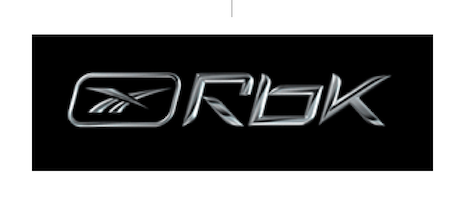By Milton Springut
Trademarks require bona fide use in commerce to gain rights – both for common law rights and for federal trademark registrations.
A recent decision from Oregon involving Adidas and its Reebok subsidiary shows that even the largest companies can be tripped up by this requirement – and Adidas ended up with an embarrassing decision that ruled it lost attorney-client privilege because of that requirement.
The case is Adidas America Inc. v. TRB Acquisitions LLC, pending in federal district court in Oregon.
Not a fit?
Reebok owned the trademark RBK, which it registered with the Trademark Office. Adidas acquired Reebok, so it was the named plaintiff in a suit alleging infringement of that mark by the defendant, TRB Acquisitions.
 Reebok's RBK mark
Reebok's RBK mark
Reebok had renewed the registration for that mark in 2012, as it was required to do under the Trademark Act. By law such a renewal requires a declaration that the trademark owner continues to make a “bona fide” use of the mark in commerce for the goods and/or services listed in the registration.
But, in fact, Reebok had not used the mark in commerce since 2010. So, it contrived to place stickers with a logo bearing the mark on the inside of certain boxes of “retro” product it was selling, all so that it could certify continued use to the Trademark Office and renew the registration.
That is where the trouble began.
The district court reviewed the relevant documents and concluded that there was no bona fide use in 2012, when Reebok filed the renewal.
Particularly problematic for the court was the fact that the stickers had been placed on the inside of the shoe box lids – bearing other marks on the outside of the box – and that Reebok made no use of that mark to market its products:
If Reebok truly intended to “leverage the goodwill” and “benefit from the brand equity” of the [RBK] mark, then why were the stickers placed on the inside of the lid of the box instead of the outside of the box where potential buyers could readily see the mark?
Customers were not purchasing RBK goods, and the goods were not identified as RBK goods. Customers were purchasing, for example, Iverson shoes. These shoes were advertised as Iverson shoes, sold as Iverson shoes, invoiced as Iverson shoes, packaged as Iverson shoes, marked as Iverson shoes on the product itself, and then happened to have an RBK sticker put on the inside of the lid of the product box. The sales, thus, did not depend on the RBK mark for identification of source. This is not brand identification, even for a mark with significant goodwill and brand equity.
Off mark
Notably, the volume of use was not an issue – the court emphasized that there was a significant volume of sales, but that did not matter, because the RBK mark had not been used to identify or promote the product. So, the court concluded that that the use was not a bona fide use under the Trademark Act.
This meant that the 2012 renewal, which certified as required by law that there was bona fide use, was a fraud on the Trademark Office since Reebok’s personnel well knew that the whole purpose of the sticker program was merely to reserve rights in the registered mark.
Accordingly, the court ruled that all communications with Reebok’s counsel about the renewal were subject to the crime-fraud exception – a longstanding rule that communications with an attorney that are meant to promote a crime or fraud are not protected by the attorney-client privilege.
So, Adidas was hit with a double whammy – its registration is now likely in serious jeopardy, and its communications with counsel are not protected by privilege.
The Adidas decision is obviously significant to trademark owners, especially corporate ones.
It often happens that trademarks that are popular at one point become less important to the company at a later point in time.
Still, there may be residual recognition and goodwill that the company wishes to preserve, including through a trademark registration.
But the Adidas case illustrates that courts will scrutinize whether the use really has a commercial purpose outside the desire to preserve legal rights.
Reebok might have been better served if it had sold a small line of goods whose primary mark bore the registered mark (RBK), rather than try to piggyback on other established marks with a sticker.
TRADEMARK RIGHTS are different from patents and copyrights – they only protect the right to use certain words or symbols in connection with an ongoing business or trade.
Trademark registrations do enhance the legal protections of trademark rights, but at their core, trademark rights have to be connected to a business – and, as the Adidas case illustrates, there has to be a real use of the mark to promote that business to maintain those rights.
Milton Springut is a partner at Springut Law PC, New York. Reach him at [email protected]. Mr. Springut's opinions are solely his.
{"ct":"hekeRm+f2igvN6l376NwiU8CsdLahzm3PYcSxQoxZmEAZF21FjqgJdYNINa7BQgx203FQKNCZJA4\/5T3OSOo3BlUyziwENHubP5XnQFO0fDJOTgkGFOBWD0z\/TgSQOkhGQSSkvPTrfy57G2jDDWKs\/sJT9oo\/qG5h0YE93QJsfEUlvnoP+ar\/6dhp4E4e60HPqDbsnR9Dwr3ZS1VG\/vGWAnJOxwN6rQwrvkGcIrp6MylDqaD6xUvBbZQx7ESjnR5eJZZ6SlOOj3BoU49aHvvaFJU\/JiTA94WlwBglCL8V8sZtno5cv2BRLkabGbk5Rddhy00W4VINamyTF0ppPP6CTM7sKoRR1fqY3tNpNZYBpXS3cIOiLaBaJcaQRFDCjbjBa0KyQEO3hefRFgYvbkMDQoTHH8n4I7En\/fog0cHB2oGZoLjVx78XgDTu52fRhJHvLpPHl2LAeI+F3Ot9vB1iYbcTZLYjdCItpTzUMrTVNdxLdR+Ic\/qukucrF5PeZltPuXQNjtWbOrVaoXWtgSVw3K8X3OUjw2k17iHkmzk07tccMqFALme6xR16hXvxs9cd9t0b45XR0vMqIwGmWTbgjgseB0Vd19t5UPsgnofX7fg1pbdtbhIRqiqWiERlf9lVYwMq0mbs1xK9eoak6+sP9B7Aa7LD1Yq4Uls4rufEcDR4OmwyhrNNAPhiZ2I0VgvZ8uU451op5one8fpaM0VqSu\/OSnVg4gk2fVtZDJYcT9MpysY6qsEAxTAalhN7Mey2GOM6psmp\/ZLIbVngX8Zc8XIIqfBneicTjEahlmsxARQVSESqdc6mNiKNaRm13a5c0unzHwNI2jTenTiVl+kXvupaJp0bjkfTmYRvrMW4l5ghpqj+sbFMOpDHAwsD0cHyyXRBTg8TNSvC1NZlihkML8dGsp230U\/pycXYM1jVx5+BWAOcIoZB73WiSABSVsOhL\/99qShVwi9iXudpO8GJgmIMofqkoSXPrMBVEo8+M7\/U1C2rB0w+QbS+tyvtG0fdWvVGD52rQiwJxz+ZR3smqKo6bjKPAwZ\/2YNsbB2J6Ok2SuJP3hLRXDVZshkyDSftuQx+UGvTmEHooonKza7QC3Vou6s2pXwhg4MbYvV0+v6J3sR7GIcFvNlfyZZ0KOJix5yrNQ0d5xFuDLIlhURDCBzjW\/3PhVJhTJK2npQIq7tnZLRvkoEu+ycg6nUJRibAuZaim8YA8V3pegbwiMiYJoFLWRsHAUPURL2UVrAicClbfzNzGHy2S43Hra3KzpsMij42N3tYSXYcltG\/kHmoXhKwal317B950dHgOvDVeTcnN6Q90O60Lz76x4ydsaBGY5orWujgnzEMnlZi15uSzar5TQC4uxgIeCqJNiSs7tdLXFlOAks3RK5usjDvEmM8iKUl\/AkmV37Ydh2T0cVLk4bLeJgGzoDbfYHKvoasWcQaVQtrOfGgg1H3byo7LCdcv80cdvaK3r0BAF1XjHiVisQiCSEJyHjdUP2X8Cm35y0qr7o1ah9DuUnRJYu50wZP1bEEskLL0iKGYXy6wpGFxudxSdK0racemtNHpzTy+aL4hKZRIeak3kKajZnJr\/1mXRVA4k72I1UKveAfxdgqJj2RA77xeHanp6KGSPbz\/AkBagb0ZQYK0IxOayWK5Ymehzpaj+24xwZKg1RaEu019jH1uTzAiawwQdoywobNRqw75FwgLSdsxhI0f3c8HMpOmvPBRDQbOXb0L33rzh6H1VeK9GBm6ew1r1jVzgUeYoDFCcLjIuLRvRB8fu+hxIGxD3ZjsjlqMQeYzu2lBD+64sPTG2hTaq8Svf11UhPJwAah6e35pq48pBrgR6d4octUR\/YyVWoYe8WH3MM4Lgu1LVLBagdoNEhYK7utreqV8UdL0+KEHB1dIeQSyxTmet7fwozL90ZyGrAj6ijka1+ihwnoxy5\/sxPFi1MWZzOwjXClWm50+4PaEKBZZYlATuUH+MXVrRyMLETsV4pf70VboOn1swjDipRWIBuPH\/iTzQjm\/ooemJmw5v00ywOR7QwOyNo4X2j4OxPQ3Xb6V0\/46c1LDeeCBmkUYJkx5yoJ3bEMd3uCE15GqlFPHR4P8aKld\/LPj1QwaZEa7mnaQyoUj\/rbc1qIyIuRpJk8YK+v+a7eIl7t3RKf9kabXJwmm87h1sw05\/Vml67NV+7hBjige4uIAqHQs\/DbspWoa9BQImQR8GwpkKMqviyJv7DikDyesslCpf\/w7O8BR0+PsocRggdUTECSsZ2DR+UzuLj3TmlsHgea3BMzSmfbScFdzZG9I4bv3eQvNOyfPofHQxtqx6843v4ru2uIQfFkrchEth+VS+zrX2291wwblLRIPECyxu2+jm7WBR43rusquYG2z2at9DkDyEbVtgFzsQJDKnK+V25ZjRepQQc6WMkvPgd97nkS7hQZN\/dm0JROoOZwnoCiORkP97GfCVbj2WxKwUq3lMLCoD34SsA2ouFO1kaoPG59sN\/ddkKfFqJN0odUbad7UuUdHzdPgQl3f5qtjNzDSrQ\/QMT\/qC2t4wIwn7Nwhu\/hCOLRqUlEKTk+ZbrnpvUb0i3AcHexGToQOFN1APIQFybXO3Z4DprWb2YwMTTGbAEkyf1RG8uhDQXOthl0dK\/+wkQhu9MC\/hBvkC3UfhCsurZFMRXbXjwtkEtL1eRoBElVZyGHa8kaoJj8IBt456M9gzIYoqWAUWeww9uP2AX9D4eyoE7nyP6fK7f1k9y3SjKv2+PR\/VkzZ5AkahRBe4tMtaz0+fSk9NqiPnZe7VNXYnPnf74TApWVQtKw+rnYUAQaURF3eBy3\/rKW9QRqaX5t3bJzLi\/U0pxlwzM04tPZAbIH1QxWCYFMPcL3d0OPqjhOumKPedYkG4BSkglP\/ZizjAXBe2z3yf0c\/zdMb0LMlfIQnZrnVG5TpIV\/cdBAjOyBh\/OjSod70dZvtvM0BWoO6DTBXc79GSd7w1C24D8G2A2o\/PjXTvhJNTK\/d9DbYt5e06opX\/F+b0v4FjXlg6CWJ2b5Vn164DBgo4xdXH0Kw+rrbNv38Qr4dgvsImvRSfyr7jNz9hMz3q9f0s01W2wY4CTB4QGCb0J8BEV1ACDWtJhHDC\/NKVB6DzQLRv69LulCXzfLOEFJ403ZvjeNZfF7OJFYIDgbtOqSZ7D774lwmm5f0IrvA2zRzHZDEkrtVn7wYzCAAiIF1QMuIxwYX+1R9Y3DYfABxnC5V2yBTw9Euq4iiXoJVSUw0ocwy\/WzISgIgG75RRO\/m5RFTB\/aTdkAUbnIfub0lV+RF1ZiFG5DDZTiwVml6gwdi0JAxYGv7pNGak+RFDNTQW+yB237IC8KbQSq7cw1vWjjW45iugJnUSlgsstjgMsmbiSB8nlPouyB6QwmUouR48mdgG7Db94SM1ywM0BXKD9QafCVZYU8Ku1dxlc6bqL1+M2AFknyrYXKrfZYkwsd7t4t9x3vj+sEGv91hjxaVnkVJHqvafT\/7Hrajoj4zZlJS7lVFqyiJZJIqfsUeM6woYskDeFo6hcJfwHo+qLuCsOcfWf9KtU6l3YvaGNmjcG0HugCLAe5LteZ0PeJWsklFI\/Xsv84NkIIab54ghgC\/T7anIbVa10U8j7T22PlL5573g89sLfSn11nOr\/a333enzayQdkbbqLzB0DkdNhVNKjy77iJeqt6hQ2f5\/dHdJFDq+tvhLKcVGDEFBLxCUwjGhb5gv3oFvl0xmfxEl0A+dfLk5ZijdqCxp\/eE2bfjuTNOZE1+hqrNhneu5px\/533Zb8gVom8MQ9jormzMVZWsQCds2ZctEAR6sQQpKy8LFWuQKvGLI4cqmAko58E4CGlCcvX8S3AIRsZ1u1sHUm5B6So2VhRMAN19hIKaGl\/j1khsbxyVzeX\/jJX5L8KRxtQuWJufoRawQ2LMEbn8JkRg4NxJCeEzh8D5nHR6s3uvySN4Qv6Q1HcTlTCPnppYnstDOX7U9z2oZ1LZs0BmeMIwoCCUB234Bhn4aE1WZjlccJAYTWDqxAIyACWy+kCwmGF7owKdUF17Ra7odrODJdv20qc1ZjbYEu3rbt9A19bIF27INRqm0OBPjX\/rjnb0hxVGMGoiwp4B8zLuHNeK5I\/LC4wnhkWKeaPjL+FpCdYu3NzMFOmkLgQv4LT6ows5UDk1CIX8LqXDlAXAgAtVY3pjeAdvRVc3tl7G7PahbMsaaeYY3vrv4rFLBQHpUXVMu\/yR\/+I60kCHWj0C\/dEiMZWamuQFLe+YD4tL5hKo8IwYybU2cAmLByP17jPRsr3lqR\/vIliTxRk8lla2HWVM\/pZeMD9WNojt+uKVz0H0oaWn9wzwVqo0wQibRdfsXqcA9TvZwELUb7Lf4C3CfTSPJWgF7kSh0ZiombrjXMtxoXbqbeq1CzdYz0D+M00HeJs5iCY1SZ7wQA3WdHX8ri9zg9egTPz30wC29MJADDUW\/OhuEWeBeVAXRrFMIZIhJVlgd3KvQl5qZmn78eFpDBqpZi5aVxpsEMrYMogz9nlKKlI9NmzeTMZt1q+1TSMzwhVYjL33VKIiT5WUqWfYkcKwGXerYk5lDg+8pqgID7fcpULKXk2M0fpL5IHkpeugzVeGYxuxzc\/ncNxVYDy+zoA5NvM+Xnha6rynMKgoAaOrf9oINyo1fGpioIEsY+QwLnDdulZ9YbWQDMrPQ8hNIMODXe9\/XiuUjkzyd8kF+wNFV3a1+8hSjnegiAaJdAk1Pa5kCSlpvVjJuQqwV9x4NlB0l9bXDO0\/cdr8JWxo5wgkmcSUaehyV6doAO9FuhUqYKD40OKPJ1UyLRdS9WDtBVwRqO7FBD4cL0J9aDSh4Ss+HCcuxkMeyiXcu2TrE8G9F6wYwtP3PFUMGpRygqx3Ois7B80DgfXXQzmkwCd8\/PN9isyfMAfHTi315GlDqR0ci48yKsh+ufcdb3fJwliu5SJa5BxMzb\/g9s1y0+XUxEidLaX1R2ffnc2h9rCpHJPsKMxYX3W6yrBQcgqpz05ViW722hoch4\/cAPP3v8XxZfEBqx8eCmpwEYyDp4qqUyURArhKpZjFKaOyim68ktyebIrsNcCHwGutaQTxww12usp5GrFHossQ2SfB3YSwTBDkCmV3xdBLdhj0peyvm94RVAj2v3bzO\/d2f6fRkEvDFB5RIRu1p9efisoiHv2HWC\/+kXuRHyfMFnv+OuOBmu2y9rd1gmBKY+AvEvLRH1yw5cDxbJbdwrBIEywRXhHZ2GbSFXJfMivUXN8x1hxb1QbQgAL3CEhpSEqapmvPrsmrJsXw6tKGniXGOSIZA52xh34Bs6Ub5IJHl2KAU+bD4oKIUMfflANDDlX7Ki\/WFmst7cUz5Um8AGprPZEliPGtIp8HH8fU08dUV8nauixrCOBwg3wFg4rSmpfMtfW7J2isUJt4tcOYWCkkQoXt8ocMNAPiaYJtGj5B1PL84fNgtYtzCdRXyGPj6iUwEdMZhYKf1J+vZZfZ2tIYI4bVuoE9OhgOuVFgLYC5k3kT3+BQdfnT2zvLnyXLaJ9vw7YYjrGZG6yQrVDoSCG+6Dzu6nBFl5raV\/LpkBPv6KIGPEaj5dZnrui6Eb8Dt+5\/eZTrUxUrQLU1\/X2i65VSv3TpiWK+N8HVeq66sbxOZuKjPLS3IaQ5QOH7cNkqhsoalUwX+liyWvYXMtjsD\/ijdm9tQwxeIcaC0toapno7dxE2q59AbaMnXocLDDY2025RH\/A+QUPPfhZQOWarOpp34JdWfKGcOwDSpwVGceRne+J5K\/ZIwuPBDnqeWW8QvFFniITknFd+766dzvNz1TJZHxYT\/2YTvtJcnNChOhaVDuZbAi4\/EWpLgAOs0JJXKPy\/6CF3olxN2ko\/NVi0g6Vm2kxXVtcNMy71py5eJaK5JTvfQRiOeGZdIukjbpLhrk9o5WYf\/Qiam\/WlDKBwR9EkN5K9zEsk4NjhJas0+Z6au9phpv7upg3dQJONt6\/h8IsPy0+u+1fd4e5vnDC409Xt\/SFO4Dr0OagMZ2MENquU0kdxqvRsKbadbiRJJf74uTSueG8CrZ4DIVEeSAXChnY1m29J29lb1g7m2QjPsPd\/RqFU9rj5ougvlu+JuxPNwZP72AFL\/ak90n06duCnDYkNcI0TfBi18Br1MbQm0yDe424d8FTpzl6Fsbn\/jOVaTB9tc1Ihb8J4meb0mI67ihZ65vH1sP4EaqWUTsFcyZVLNTPaU2uReowQ2O9qFYI3tVeJ6v27xt02rcEJmsa4lbK05NY2ZsPVNrujZqcVcnPNpmC1LPBcgEs7YNPbiKbyAKxkKJkLSCEhHosn5RqIKQ1qsVw6uQK1CyWGMdOBkrlKKiyW5PuRxuLGqyiskbA8sKDAkS7DB5qX2MzNj6j2GR\/Y79\/NFsJbx08uex6KRlffqCd6w1TQdLQ66HdjHfkrosGFy8JaavpZPIIMnF2KNPZEZnF\/SVVygb+oQAhW8uU9lGYQoq5G1+t9SKhCLlbSeha5iXuO8OTxk1O8MoBipQbLP45Ft\/08NIchovPkFT2DMorOOR9oJzO8Q3qjYqdYe153v5HfEIztDBoWRRwMVB5E8WfGWSjJcheNMa2pm9GFSp+AT6WzXEAq7eCyhZcoGwy3JQzJqX685IRGUEFk9ENcsGTxFlliSSDK5q0z5WGXxcoyluhI8aQNqFcpdY2bSdNV0Ky8deIySPfbJAUEYlp3Ml8OA2n1iCZ+vVG+9bfmzXw11Nx5xryFyAD\/+ulvCPW6XmmpXiy2Zn20pC9fH2w0315MuUi7UotDaXSTWauwfLItMUf\/\/aApvomK8tA9tVQ\/gxKJkCSdgeJOPZTwMfkfXd37Q14W4VkFiKnYWGhNuDL3S0z3vneazat4fyv+1ONcAkD\/0K3H58xFAH2kyB4RUD8IsDH2bcclX2PBc2k5jVexaFjhwU0oysLmhVjcVvXEMcB14l+rSAOO3vdpLgk2AtHeMn0x84aQprW\/04ZgickHs3eNCfz3hHYfm6VQ6h68z8OOZ6UjqcaFrFp23SYyueu\/mWgjPqp1Jjte21jgBc4JhNyjhvMPuMhYPSW6hdX+M77Kcg4t7Taq018oValqCBFyxBmxhnUZlqmvpFb1dKd6UVCV3kf8Dgy9iOHuMe8fXQVaKtqDKbyclh9WUT8ODOq7RtUfGqzrPQcCMKZCrLfEBQMBOihzDPjctDTuy8yW8TG8fkn+o+vhGHzisC5XxpiVnotEbfyVHH1CmqnQLbfCcuLilc1zVrIjvB215OphTGT7\/eoFYSyMUAFx8uQVN4zP4KMWTRvECv2aRPqlYT3fihUP38UE0jVQ03du+38TyV+ZDD\/FRypJDZAsKhJkd+efpsrRaIL4Al1JfqOCdc4O+xAZ6D06ny4Ety6We3GWP2OnaWHNu2OaNOMHXW\/GEm7coKVlHG9JUAFkeB9H6BVgNPhucdbGNWkNjh+uY17\/x1RziXQWqWwwYYeK1TwCu0yuj2plFjjvKzhoeeIRQYXhmN+L6JBdlfctTx3oD6+UoMD+YzgwkRVVct9cY0VXT9dEda56Dd\/WNQV9TNmGZpz6\/zbXbZoWcLTnDhyik+sqWgIJgrU127Zpu3bjnySNPdV2jEMKTTtQi7KARaWrkVhG7elVtFIx3\/6H12N8bjQItLoNG0cgLRARXbH24JOw\/mJdrCkHRh1s4xpBI9fUqB7AedBPT9rZSD2mvxD4cpOaC6wBJHLVb\/K70caSt+zFMbYRDX7oDpU8LluYMpcRKkxFunD\/MjX9ftzCQoQqlgM9TTJzLJwaPg3K5323gIXKUjG5o+Ja7oNIx6FgpQFnZGHv\/6\/p9M7u7K83EU6pkZm1TgbbYdO4KkZD8oI2oVH3oadALloErpFU9Btsj5NrrXaRMOEA==","iv":"b88e2859c4e6ace9bcefbe5d8547c639","s":"b4f5efbf602fd0f3"}

 Milton Springut is a partner at Springut Law PC
Milton Springut is a partner at Springut Law PC
 Reebok's RBK mark
Reebok's RBK mark